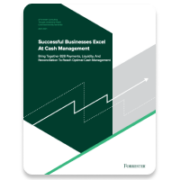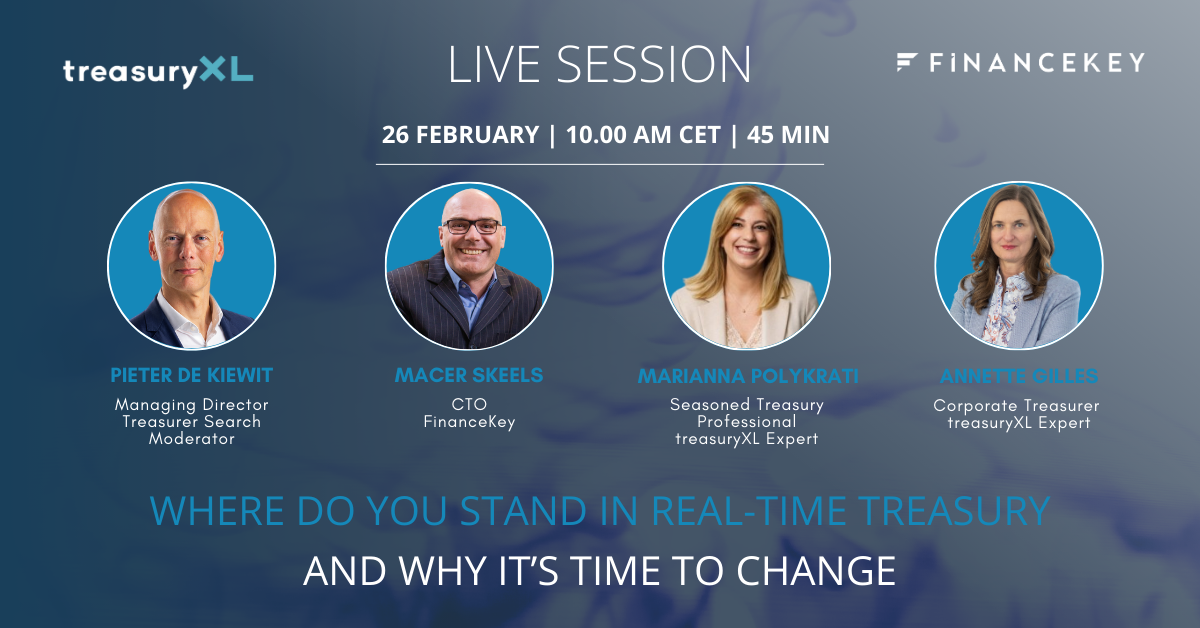Can you still see your banker as a trusted advisor?
22-08-2019 | by Pieter de Kiewit | treasuryXL |
 Is your banker a trusted advisor or just another sales representative?
Is your banker a trusted advisor or just another sales representative?
The times that you, entrepreneur or CFO, could just accept the advice of your banker is over. Understand that your banker expects you to have more knowledge than before. Do know there are alternatives. And do not forget that your banker has a target (hard or soft), just like others selling products or services.
When I accompanied my father to meet his doctor, it was clear we are of different generations. He listened and accepted, I was looking for dialogue and had questions. The attitude my father showed towards his doctor, I often see with CFOs and owners of smaller businesses. Is this a problem? Where does it stem from? Should relations change?
Your relationship with your banker has changed
Decades ago there was a knowledge gap between what bankers and entrepreneurs knew about financial markets and products. The number of local banks was limited as were funding sources. The interest was higher than it is nowadays (not too hard with current rates). All this led to a power imbalance between banks and their clients. You had to listen to your banker and accept. In those days bankers showed a different attitude than they did later. I often hear remarks about the former ABN boss Jan Kalff, he apparently was trusted like a medical doctor. I am afraid the bankers’ oath does not make current bankers a similar Jan Kalff.
Over time bankers and their clients have, together, changed their relationship. Starting with the one between banks and large corporates with treasury teams. These increasingly bigger teams gained knowledge and opened relations with alternative banking partners. On top of this, banks started rewarding their employees increasingly in an Anglo-Saxon way with an aggressive connection between performance and bonus. Treating your banker like a doctor was not appropriate anymore. Between large corporates and banks a new equilibrium was reached.
Between smaller organisations and banks a lot went well, regretfully not everything. One of many examples is that in The Netherlands sales of derivatives was done wrong in two obvious ways. First, clients bought products without understanding what they bought (and did all bankers really understand?). Second, bankers did not sell these products because their clients needed them to increase their bonus. A lot has been written about this.
Regretfully, a lot of entrepreneurs and also their auditors think they have full understanding of banking products and costs. I have seen too many treasury experts prove them very wrong. This new equilibrium has not yet been set.
An important extra development that has an impact on this topic is that banking services substitutes are being offered. Facebook can facilitate your payments, you can buy currencies cheap from Privalgo and there is a wide variety of extra funding sources coming up. All these solutions do not (yet) have an established market presence.
New banking relationship management
This is not a call for bank bashing. We do not bash the car sales guy for trying to sell a car. I do want to invite you to consider threating your banker as you would like any other supplier. Always remember he has a sales target. Understand that bankers have to balance their oath with this target. On top of this they see many of their colleagues being let go. For them these are no easy times.
Find out if you have the expertise to have a balanced meeting with your banker. Can you oversee your risks, do you understand the products and do you really know what you pay your bank? I have had more than one meeting with a banker in which I learned that banks themselves often do not know what they make on their clients. The amount mentioned on your bank statement about their costs does not cover everything your bank earns on you. Do you know the spread they take on your FX deals, the margin on insurance products? They and you often do not know the product alternatives and their rates. You can get low threshold expertise or send your employees to get relevant education or have them visit events. The expertise is available.
Times are changing
Changing relationships with your bank are only a problem if you ignore the change. The banks did not ignore and have changed. In my opinion these changes are good. Bear in mind that corporate treasury is not rocket science. Spend the time on this topic it deserves. Times are changing, so keep an eye on what is happening. It will save you cost, create opportunities and help you avoid risk. Good luck and drop me an email if you have questions.
Pieter de Kiewit
Owner Treasurer Search










